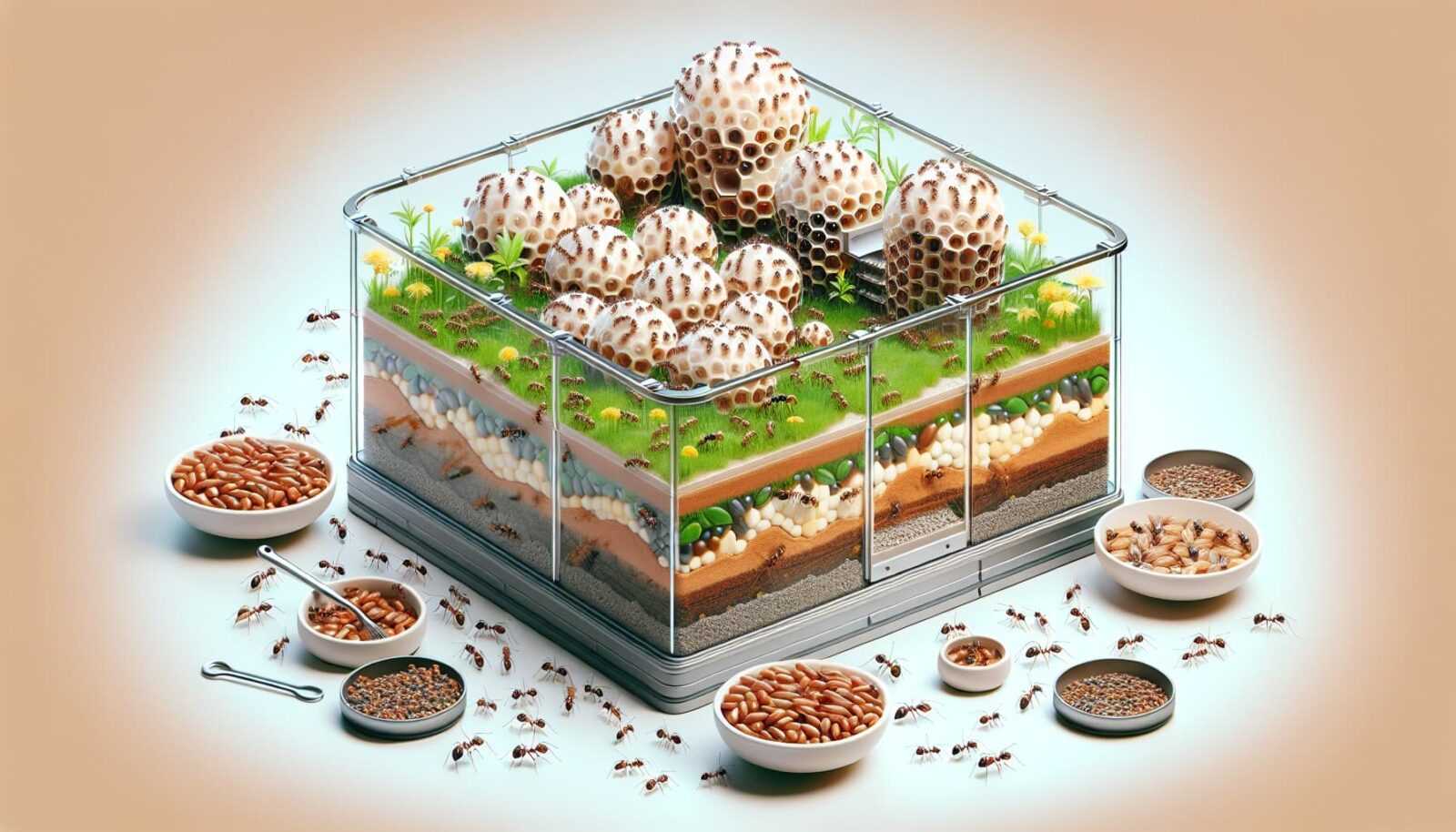“Ant Farm Starter Kit: Grow Your Own Ant Farm from Seeds”

The Importance of Ant Farms
Ant farms have been popular educational tools for both children and adults for many years. They provide a fascinating glimpse into the world of ants and their complex social structure. Whether you’re a science enthusiast or a curious individual, an ant farm starter kit is an excellent way to learn about these industrious insects and observe their behavior up close.
Discovering the Fascinating World of Ants
Ants are incredibly interesting creatures. They live in highly organized colonies, with each ant having a specific role within the community. An ant farm provides a window into their intricate systems and behaviors, allowing you to witness how they work together to build tunnels, forage for food, and communicate with each other using chemical signals.
By setting up an ant farm starter kit, you can gain a better understanding of these remarkable insects. It can be a fun and interactive way to educate children about the wonders of the natural world and spark their curiosity in science. Watching the ants go about their daily activities can be a mesmerizing experience that fosters a deeper appreciation for the complexity of life.
Choosing the Right Ant Farm Starter Kit
When selecting an ant farm starter kit, there are a few important factors to consider. Firstly, make sure it is a suitable size for your needs. Different kits offer varying levels of complexity, so choose one that aligns with your level of interest and experience. Additionally, it’s crucial to select a kit that includes a safe and easy-to-maintain habitat for the ants.
There are various types of ant farms available, ranging from basic gel-based habitats to more advanced setups with sand or soil. Gel-based ant farms provide a clear view of the ants as they dig tunnels, while sand or soil setups allow for more natural ant behavior. Whichever type you choose, ensure that it is properly ventilated, has access points for feeding, and is easy to clean to create a thriving environment for the ants.
Maintaining and Caring for Your Ant Farm
Once you have set up your ant farm, it’s important to provide the ants with their basic needs to ensure their health and well-being. Feeding them a balanced diet is essential, as ants require carbohydrates, proteins, fats, and sugars to thrive. Many ant farm starter kits come with pre-packaged food, but you can also supplement their diet with small pieces of fruits or vegetables.
It is crucial to monitor the temperature and humidity levels in the ant farm. Most species of ants prefer temperatures between 60°F and 85°F (15°C – 29°C). Keeping the ant farm away from direct sunlight or extreme temperature fluctuations is important to maintain a suitable environment for the ants. Regular observation is also vital to ensure the ants are healthy, active, and exhibiting normal behaviors.
Ant Farms and Education
An ant farm starter kit is not only a source of entertainment but also a valuable educational tool. Watching ants build their intricate tunnels and care for their young can teach important lessons about cooperation, hard work, and perseverance. Students can learn about the different ant species and their unique characteristics. By observing and documenting their behaviors, they can conduct scientific experiments and learn about the scientific method.
By incorporating ant farms into learning environments, educators can provide hands-on experiences that engage students in the natural world. Ant farms can be used in biology classes, environmental science programs, or as part of STEM curriculum. They offer an opportunity for students to develop critical thinking skills, learn about ecosystems, and explore the interconnectedness of living organisms.

